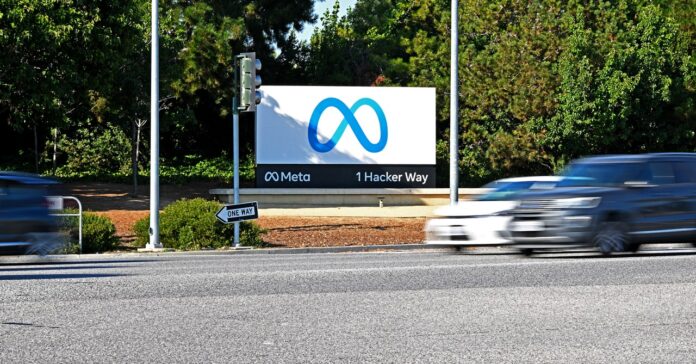Meta’s cascade of announcements this month on slashing diversity initiatives and relaxing hate speech policies warned of a significant change in the lives of some of its employees. Teams that write and enforce rules for what can be posted on Instagram and Meta’s other services will be moved from California to Texas and other parts of the US to “help remove the concern that biased employees are overly censoring content,” CEO Mark Zuckerberg said, without elaborating.
But the actual number of employees that will have to relocate is limited, according to internal discussions described to WIRED by four current workers.
Last Thursday during a town hall call for Meta employees working under Guy Rosen, the company’s chief information security officer, executives said that no one in Rosen’s organization would have to move to Texas, according to two people in attendance. This exempts from relocation employees who work on Meta’s safety, operations, and integrity teams, which collectively help enforce the company’s content policies.
The changes also do not affect a portion of Meta’s US-based content policy team, which works under chief global affairs officer Joel Kaplan, because many members are already located outside of California, including in Washington, DC, New York City, and Austin, Texas, the employees say. That includes key decisionmakers such as Neil Potts, vice president of public policy. Many of the company’s content moderators are contractors based out of hubs beyond California such as San Antonio, Texas.
Full-time employees who are asked to relocate from the company’s headquarters in Menlo Park will receive financial assistance to do so, according to one staffer familiar with the plans. Another described those that will be affected as “not a very big” team. It’s unclear whether some staffers located in Los Angeles will be subject to the moving order. Meta didn’t respond to requests for comment, including to specify how many contractors and employees based outside of Texas will be required to move.
For years, Republican politicians and other right-wing critics have claimed that Meta favors liberal voices on its platforms, while unfairly silencing minority opinions on issues such as vaccine safety and immigration. At times, blame for the alleged bias has been put on the notion that Meta’s decisionmakers are based in the San Francisco Bay Area, a liberal-leaning region where Donald Trump lost the vote in the past two presidential elections.
With Trump set to take office next week, Zuckerberg said he feels society has reached a cultural tipping point. “You got to do what you think is right,” he said last week on The Joe Rogan Experience podcast, during a nearly three-hour appearance that included a bathroom break. He started Meta to give people a voice, he said, and felt the company had drifted away from that mission in recent years. “I just have a much greater command now of what I think the policy should be, and, like, this is how it’s going to be going forward,” he added. “We try to have policies that reflect mainstream discourse.”
Whether shifting teams to Texas will be anything more than symbolic is unclear. Common sense suggests if a person in California exhibits some sort of political preference, moving them to Texas isn’t likely to reshape their viewpoints immediately.
In the same town hall call, company leadership described the Texas relocation as an attempt to address the perception problem with California. That reasoning frustrated employees, who believe Meta is harming its workforce to appease Trump, the three staffers told WIRED. Meta and Trump remain in litigation in a northern California federal court over the temporary suspension of his account following the January 6, 2021 riot on the US Capitol. Trump alleges his constitutional right to speech was violated. Zuckerberg recently met with Trump at his Mar-a-Lago Club in Florida to mediate the lawsuit, according to the Wall Street Journal.
This week, Meta unveiled plans to cut 5 percent of its workforce starting next month. The company said it plans to refill those positions throughout the year—a move that could see more employees hired in Texas. After Meta’s decision last week to shutter its diversity, equity and inclusion program, there will be no targets for hiring historically underrepresented groups.
Last week’s changes to hateful conduct rules allow users to post more acerbic criticism, including about gender and ethnicity. During the Rogan podcast, Zuckerberg said users would now be able to advocate on issues such as whether they should serve in military combat roles. Some employees have warned that Meta is now supporting the spread of misogyny and bigotry on its services, according to two of the workers.
On the town hall call with employees, an executive defended the policy changes by saying they would open the door to a multitude of perspectives, such as being able to call men lazy on Facebook without fear of being censored, according to one employee in attendance.
On the enforcement side, Meta is winding down its current fact-checking program, limiting use of automated filters to suppress allegedly offensive posts, and promoting a greater amount of political content in newsfeeds.
On Tuesday, 12 civil rights advocacy groups that say they have advised Meta for years wrote to the company to express “grave concern” with the revised policies. “These changes are devastating for free expression because they will subject members of protected groups to more attacks, harassment, and harm, driving them off Meta’s services, impoverishing conversations, eliminating points of view, and silencing dissenting and oft-censored voices,” wrote the group, which includes the Center for Democracy & Technology, Human Rights Campaign, and the National Black Justice Collective.
In the security and integrity town hall, management would not commit to continuing to publish statistics about the gender and racial makeup of the company’s employees. “It’s capitulating in the worst way,” one says.
Individually some managers have told their teams that they plan to continue pushing for diverse hiring, according to three employees.
Additional reporting by Steven Levy.
Source : Wired






